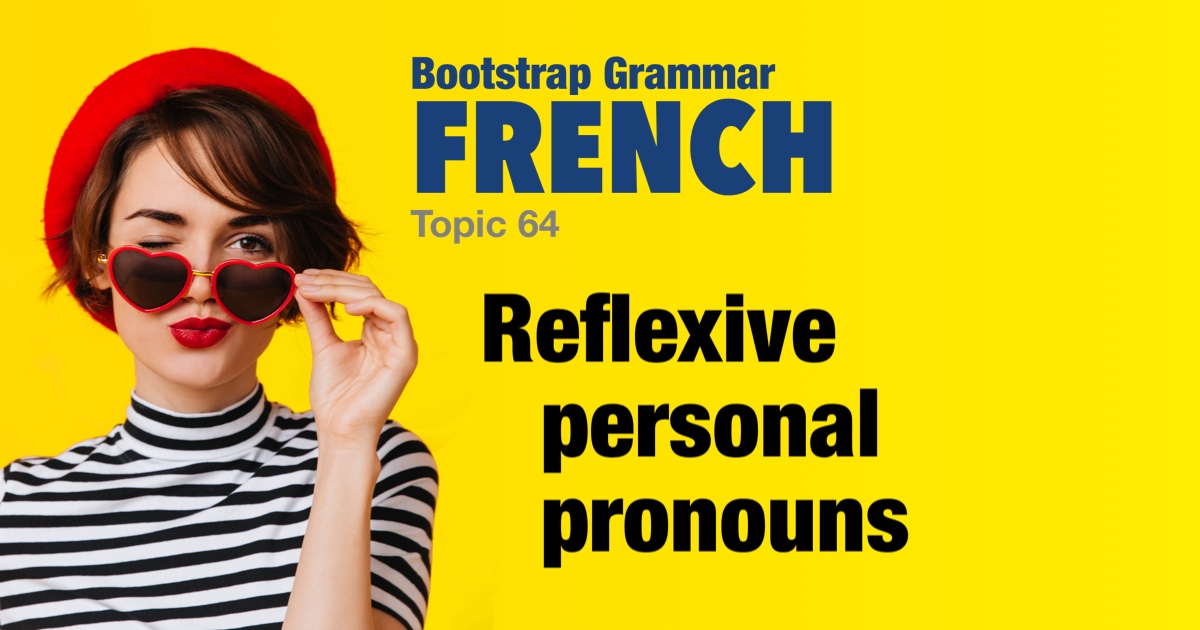French grammar - Reflexive personal pronouns |
|||
|
|||
Reflexive pronouns indicates that the subject of the verb is performing that action on itself. -- In English the reflexive pronouns are 'myself', 'yourself' etc. and are used in the same way - for example 'I wash myself'. The French reflexive pronouns are as follows: • je ⇒ me : 'myself' • tu ⇒ te : 'yourself' (familiar) • il, elle, on ⇒ se : 'himself', 'herself', 'itself', 'oneself' • nous ⇒ nous : 'ourselves' • vous ⇒ vous : 'yourself '(formal), 'yourselves' • ils & elle ⇒ se : 'themselves' The pronouns me, te and se contract with an apostrophe when followed by a word that begins with a vowel or mute h. |
| Examples: | |
|
Je me regarde dans le miroir.
I look at myself in the mirror.
|
|
|
Ils se voient souvent.
They see each other often. |
|
|
Elles se parlent.
They (females) talk to each other. |
|
|
Vous vous voyez.
You (formal) see yourself. |
|
|
Je me demande.
I wonder. *OR* I ask myself.
|
|
|
Elle se lave.
She washes herself.
|
|
|
Nous nous parlons de la météo.
We talk to each other about the weather. |
|
|
Mon père se rase chaque matin.
My dad shaves himself every morning. |
|
|
L'enfant s'habille tout seul.
The child dresses him∆herself. |
|
|
On s'amuse.
We are amusing ourselves. *OR* We are having fun. |
|
|
Est-ce que vous vous lavez ?
Do you (formal) wash yourself? |
|
|
Ils s'habillent dans la cabine d'essayage.
They are dressing (themselves) in the fitting room.
|
|
|
Pouvez-vous vous voir sur cette photo ?
Can you (formal) see yourself in this photo? |
|
|
Non, je ne me vois pas sur la photo.
No, I don't see myself in the photo. |
|
|
La mère et le fils se voient tous les week-ends.
The mother and son see each other every weekend.
|
|
 |
|



 This is how to say 'I wonder' in French.
This is how to say 'I wonder' in French.